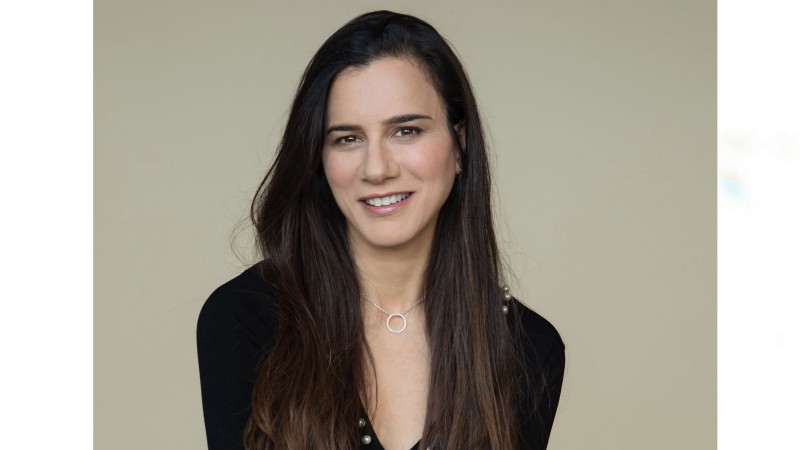TIPA, a 2019 World Economic Forum Technology Pioneer, has developed fully compostable flexible packaging that can do the same job as polyethene and polypropylene, the most common forms of conventional plastic, without polluting the environment. Inspired by nature, the Israeli startup provides packaging for items such as meat, cheese, fruit and bread, that emulates the quality of plastic film but breaks down entirely into compost using the same biodegradation process as an apple or other types of organic waste. Customers include British supermarket chain Waitrose, Google Express, which handles deliveries for Best Buy, Costco and Target in the U.S. and fashion brands including Stella McCartney and Gabriela Hearst.
TIPA has an innovative, go-to-market strategy. Its patent-protected film can be produced using the same machinery as conventional plastic packaging, enabling traditional manufacturers to easily go green, says founder Daphna Nissenbaum (photo above). “Our vision was to develop a product that is built to fit existing machinery and chain of supply systems all the while offering the same quality of packaging and user-friendliness we’ve come to expect from conventional plastic,” she says. “We developed an operational model based on collaboration with companies that manufacture conventional flexible plastic packaging. This way, we can address local demand in various markets. When we partner with a manufacturer, our engineering team offers professional services, guiding the local team towards successful production. The local converters become our partners as we shift towards an era of compostable packaging.”
While it takes conventional plastic packaging at least 500 years to disintegrate, TIPA’s packaging, including their laminates and labels, fully disintegrate under compost conditions — high humidity, high temperature, and the presence of microorganisms — within 180 days. Depending on the type of packaging and shape, the compostable packaging is comprised of 20% to 60% plant-based ingredients.
TIPA started direct sales two years ago and is seeing a growth in demand from brands, says Nissenbaum. Its primary focus is on the food sector but it is also working with environmentally conscious fashion brands. The company has teams on the ground in the U.K., U.S. and Australia. It has so far raised $23 million in venture capital and is about to raise another round, she says.
TIPA is one of the early to growth-stage companies from around the world that are poised to have a significant impact on business and society selected by the World Economic Forum to be Technology Pioneers. The Innovator’s editor-in-chief is one of the judges. This year’s Tech Pioneers are shaping the future by advancing technologies such as AI, IoT, robotics, blockchain, biotechnology and many more. The focus areas of this year’s Tech Pioneers also includes agtech, smart cities, cleantech, supply chain, manufacturing, cybersecurity, autonomous vehicles and drones.







